Best City to Move to in 2024
Why CDMX, Lisbon, Montreal or Paris will definitely solve all of your problems
Have you recently gone through a bad breakup?
Lost your job and looking for new opportunities?
Commit a crime and trying to flee law enforcement or just tired of going to the same bars and restaurants?
Do I have a solution for you.
In 2024, the world is buzzing with cities that promise exciting lifestyles, booming career opportunities, and rich cultural experiences. For those ready to start anew, picking the perfect city can be a thrilling yet overwhelming adventure. With factors like affordability, taxes, and community vibe to consider, the choice becomes even more complicated.
In today’s article, I created a guide to a few cities worth considering.
For the purpose of this guide, I am focusing largely on affordability, demographics, and cultural flair. This article will be most useful to North Americans and Western Europeans in their late twenties or early thirties without children and with careers that can be easily relocated. Naturally, depending on your situation and personal preferences, these recommendations might not appeal to you. Before making any life plans, please consult with your life coach, psychic, partner, or any other professionals in your employ.
(Many of you might be wondering where is the sequel to How to Not Suck at Sales. Don’t worry it is coming next week. I have a posting schedule to follow. Subscribe so you don’t miss that article and others dropping each week).
Today I will be discussing the following cities:
Disclaimer: Given that this topic is inherently subjective, this article cannot speak to the experience of every person living in these cities. I made an effort to support my claims with evidence, but I did not include sources for every statement because I wanted this article to be enjoyable to read. However, there are still as many footnotes as a David Foster Wallace novel.
If you have lived in any of these cities, I am certain you will find something you disagree with or feel is missing context. I encourage you to share your thoughts in the comments for the benefit of other readers. Feel free to insult me while you're at it; I am sure it will do wonders for my engagement metrics.
Mexico City, Mexico (CDMX):
If you tell somebody you are going to Mexico City (CDMX) you will generally be met with one of two reactions:
Mexico City?… Be careful, it’s super sketchy and don’t drink the water!
That’s amazing, you are going to have such a great time! Where are you staying? Roma Norte? Condesa?
You can easily discern the two groups of people. The first group has not been recently while the second group likely has, at least since COVID. If you visit in 2024, you will immediately understand the latter groups reaction, but still don’t drink the tap water.
Mexico City is a vibrant mix of history, culture, and modernity, brimming with fabulous restaurants, world-class museums, and trendy boutiques. The city is a magnet for North Americans and Europeans, looking for a remote work haven, especially during winter. CDMX is ideal for telecommuters as it’s 3-6 hours from most major North American airports and just one hour behind Eastern Standard Time.
(the Bosque de Chapultepec)
Despite its 9.2 million residents, Mexico City doesn’t feel overwhelmingly crowded; spanning 1,485 square kilometers (573 square miles), its land area is nearly double that of New York City. At 6.2 thousand (K) inhabitants per square kilometer (KM2), its population density is closer to cities like Montreal or Lisbon (more on those later). There are naturally more people closer to the city center and popular tourist spots, but even in the busiest places, CDMX feels surprisingly spacious and relaxed compared to other high-population cities like NYC or London.
Roma Norte and Condesa are fun neighborhoods, and if you are into art and culture, there are many great museums like the Museo Nacional de Antropología, which is located in the Bosque de Chapultepec, a 686-hectare park nearly double the size of Central Park. You can definitely spend many afternoons there admiring the sights or simply getting lost.
11% of Mexico City residents are foreign-born. This may not seem like much, but it still amounts to nearly 1 million people, so it shouldn’t be too difficult to find expat friends. Due to its geography, about 80% of these foreign-born residents are American, with the rest coming mainly from South America1.
Even with its vibrance and immigration, CDMX is not as expensive as other major international cities. There are many good restaurants, but they do not need to be expensive. In my experience, meals at nice restaurants often come out to around $50-100 USD per person. They have many options at different price ranges, which makes it suitable for various budgets. This is supported by a number of international food guides2.
Beyond food, it ranks well when comparing the cost of living against other big cities in the world3. From a tax standpoint, if you were to earn $100K USD your effective tax rate would be around 31%4. This is higher than most places in the US but compares well against European countries. This allows telecommuters earning salaries from other places to have a very high standard of living.
The weather is quite good all year, although it gets pretty cold in January and early February, especially during the mornings. The city gets a lot of sunlight year-round and receives about 300 millimeters of rain per year; more than half of that rain comes from June through August.
It is generally straightforward to immigrate to Mexico but you can also stay up to 180 days without a Visa. You can visit and get by without knowing Spanish but it does certainly help, especially once you get further from the touristy parts of town. For longer-term stays, you should learn Spanish.
To address the criticism from the first group of people, on a global basis, CDMX is considered a higher-crime city, but compared to other parts of Mexico and South America, it is less so. There is more dangerous crime closer to the US-Mexican border. Violent crime against tourists is less common in CDMX, although pickpocketing can be an issue. Locals will tell you that most of the crimes in CDMX happen away from areas that tourists or expats would frequent.5.
The main thing missing from CDMX is a beach; not having one within at least a few hours is a bit of a shame. It’s rare for a city this size with all of these other great attributes to have one, so perhaps I am just greedy. Beyond that, many local jobs require Spanish, so it’s more ideal to have a remote job that lets you work from Mexico City.
Otherwise, with great weather, food, culture, and nice people, this would be an amazing place for a short or medium-term stay. If you are moving to Mexico to avoid crimes, you should know that they do have an extradition treaty with the US.
Lisbon, Portugal:
Lisbon is another fun city that benefited greatly from the COVID remote work boom. Like CDMX, many people were drawn by the nice weather, great food, and relatively lower expenses. CDMX largely took in North Americans, whereas Lisbon appealed to many workers across Europe with flexible work arrangements. Portugal further fueled this by launching a few visas making it easier to stay long-term (see the Digital Nomad6 the D77 or D38 Visas). Lisbon is very well located, with direct flights to many large cities in North America, South America, and Africa. The 5-9 hour time zone difference with North America could be a deal breaker for some, but if you don’t mind starting your workday at 2-3 pm, you will trade working late for free mornings.
Lisbon is much smaller compared to Mexico City, covering only 100 kilometers (39 square miles), and with 500K residents, it is less populated than big cities. Despite this, Lisbon has a good energy with fascinating architectural styles, some dating back to the 12th century.
This is why you will find castles (see São Jorge above), old cathedrals, towers, and other great sights scattered about. If you are willing to drive to Sintra, there are even more sights to enjoy, making for a great day trip when you want to get out of the city. If you are into art, there are many great museums, such as the Museu Nacional de Arte Antiga, located near the Tagus River, offering stunning views and a serene environment.
As in CDMX, there are a lot of great restaurants. Dining out in neighborhoods like Bairro Alto or Chiado is not prohibitively expensive; I found dinners often cost around $40-90 USD per person. There are many options at different price ranges, making it suitable for various budgets. If you can get paid a salary consistent with a bigger city but live in Lisbon, you will live like royalty. This is because the cost of living in Lisbon is very favorable compared to other cities.9.
The reason it is so affordable is that the economy is not very strong, and Portuguese salaries are comparatively low while taxes are high. As an expat, if you moved to Lisbon but continued to earn $100,000 USD, your effective tax rate would approach 50%10. This, combined with fewer job opportunities, especially for non-Portuguese speakers, likely gives people pause before immigrating fully to Lisbon; only about 9% of Lisbon residents are foreign-born11.
The weather is pretty good from April onwards. Like the rest of the Mediterranean, it rains quite a bit from October through January but only gets sub-10-degree weather for three months per year.
Although only about 40-50% of Portuguese people speak English, this percentage is much higher in Lisbon, making it easy to get by without Portuguese. However, in rural areas, this changes. Dealing with administration might be challenging, but Portuguese people are generally patient and helpful with foreigners12.
Despite the amazing weather, food, culture, and lower living costs, most North Americans or Western Europeans might find it tough to move to Lisbon full-time due to limited local job opportunities and higher taxes. If you seek culture with better career prospects, consider looking north.
Montreal, Canada:
When some picture Montreal (or all of Canada, for that matter) their mental image normally resembles north of The Wall in Game of Thrones13 . While it definitely gets cold from December through February, the weather is pretty agreeable for the rest of the year. I won’t try selling you on moving to Montreal on the weather but accounts of how cold it gets are often exaggerated. In any case, there are many reasons why more than 1.6M14 live in the largest city in Quebec (second biggest in Canada).
Yes, Quebec is the French speaking part of Canada. While only about 20% of Quebecers (Québécois in French) consider English their first language, about half the province is bilingual15. In Montreal, these percentages increase, especially in stores and restaurants with bilingual staff.
Montreal, at 200 square kilometers16, is twice the size of Lisbon but the neighborhoods further from downtown are more residential, ideal for families but don’t have any castles. If you seek excitement, areas such as Saint-Henri, Verdun, Griffintown, Mile-End or Little Italy are a better bet. There is also the Plateau, notably popular with French expats, with distinct accents and aesthetics.
Many people from France move to Montreal because of the common language17 but Montreal appeals to immigrants from all around the world. According to the 2021 Canadian census, ~30% of Montreal’s population are immigrants. This is consistent with Canada but high on a global scale. Most are from Europe & North America followed by Africa and the Middle East.
Montreal is a great middle ground for Europeans not ready for a full-blown American experience and Americans not ready for Europe. The city offers good food, nice parks, edible croissants, and the best bagels. You can bike around but still easily drive or use Uber. Europeans will appreciate the spacious apartments, job opportunities, and lower rents, all while enjoying a gun free environment, universal health care, subsidized daycare, and maternity leave.
Americans might appreciate these benefits too, although they'll likely complain about income taxes and some might want to keep their guns (especially if the Montreal Canadiens come close to winning the Stanley Cup). However, they’ll enjoy the favorable capital gains rate and the lack of estate/inheritance taxes18. They might also like the ability to be at a ski hill in under an hour from the city.
If you dislike skiing, hockey, or winter chalets, you might not love winter in Montreal (though Igloo Fest, a month-long outdoor electronic dance music event, is pretty cool). You can always follow the snowbirds to Florida or Mexico City for the winter. Still, there's a reason people always come back for the summer.
(Igloofest during winter)
In a span of 8 weeks starting in June, Montreal hosts the following events:
Formula One Grand Prix (First week of June, has been hosting since 1967)
International Jazz Festival (Two weeks starting the last Week of June)
International Comedy Festival - Just for Laughs (Last 2 weeks of July19)
Osheaga Music Concert (First Weekend in August)
îleSoniq EDM Music Concert (Second Weekend in August)
This doesn’t include Piknic Électronik, held every weekend from mid-May through early October at Parc Jean-Drapeau, the same venue as Osheaga and ÎleSoniq.
Despite not having any Michelin starred restaurants, Montreal regularly receives acclaim in international food publications20. Similar to in Lisbon and CDMX, you can find good dining options without paying a fortune. A meal at a good restaurant in the Plateau or Saint-Henri generally costs between $50-100 USD per person; in the Old Port, add about $20. You need to tip in Montreal, standard is between 15-20%.
Compared to other large North American cities, Montreal ranks well in cost of living while still offering good job opportunities.21. The inability to speak French will hurt your job prospects, but this isn’t true for all jobs, and there are government programs and subsidies available if you’re willing to learn.
If you want to live in Canada with a primary focus on career opportunities, you might end up in Toronto, but it comes with higher living costs and fewer good restaurants and cafes. If you’re not afraid of winter and willing to learn some French, Montreal offers a nice middle ground between North America and Europe. Speaking of Europe.
Paris, France:
I am sorry to disappoint those hoping to read about the one in Texas. Paris, France is consistently one of the most visited cities on earth and needs little introduction, but have you ever wondered what it is like to live there?
At 105 KM, Paris is about the same size as Lisbon but has >2M inhabitants (11M in the metropolitan area). At 20.5K people per square KM2, Paris is way more densely populated than CDMX (6.2K), Lisbon (5.5K) or Montreal (4.8K-8.0K).
If you are looking to optimize for food and culture, Paris remains a bastion for both. The city boasts over 100 Michelin-starred restaurants and more than 14,000 eateries. While foreigners often think Paris only offers classic French bistros or high-end cuisine, you can find a variety of food concepts (happy to share some addresses if you want). You don’t need to spend a fortune to have a great meal. Though Paris is not cheap, you can find more affordable options away from the pricier arrondissements—just avoid rue Barbes (I don’t want any of my readers to get stabbed22). One key thing to know about dining out in Paris: tipping is not necessary as servers are paid a full salary. They might try to trick you into tipping, but ignore them—don’t do it.
Paris boasts over 100 museums, including the Louvre, d’Orsay, and Centre Pompidou, plus smaller gems like the Musée Rodin, Musée Picasso, Fondation Louis Vuitton, and Musée de l'Orangerie. If you are not into museums, you have plenty of Opera and Concert halls.If museums aren’t your thing, there are plenty of opera and concert halls. You can visit historical literary cafes and pay a lot to sit where famous communists once criticized the bourgeoisie. Walking around, you’ll encounter historic sites like Montmartre, L’Arc de Triomphe, and Sainte-Chapelle or Notre-Da-oh never mind (Sorry still too soon. It’s okay they are restoring it). I think you get the point, when it comes to culture, Paris has an embarrassment of riches but these are all things you could benefit from as a tourist; what if you lived there 12 months per year?
Between 15-20% of Paris residents are immigrants or foreign born23. Many come from former French colonies such as Algeria and Morocco or other parts of Europe. With ~400K immigrants, you are likely to meet people from your home country.
Many move to Paris for its cultural allure, not the weather. It’s not as cold as Montreal, but December through early March is still unpleasant, with humid winters feeling colder than they are. Summers can be quite hot, exacerbated by tourist crowds. To avoid tourists or bad weather, May or September are the best months.
As you would expect, living costs are way more than the other 3 cities in this article, but not as high as London and NYC24. Pre-tax salaries are similar with London, but much less than New York (30-40% ). When factoring in taxes, at a salary of $100K USD, you would pay ~$10K USD more in taxes working in Paris compared to NYC. Despite its reputation, taxes in France are not the worst; they are lower than in Portugal, similar to Canada for income tax but worse for capital gains, and higher than Mexico for income tax but similar for capital gains.
Beyond weather, living costs and taxes, Paris shares issues with other highly populated cities, such as higher crime and areas to avoid at night25. Parisian and French culture might also require adjustment, especially regarding food and drinks.
Did you know you are not allowed to snack in France? Seriously. However, if you do insist on snacking then it must be at 4pm. It must also be a sweet snack. If you want to have something sweet, you can only have them during after work drinks (apéritif)26. If you do not enjoy following social norms, and their weird rules, you might not enjoy it.
If high population density, living costs, crime, and taxes don’t scare you off, and you seek amazing food and culture, Paris could be the city for you.
To conclude, deciding to move is a big life step and one that should be carefully contemplated. While I cannot prescribe specific advice, I hope this article taught you a few new things about these cities and helped inspire your search for a new place to live.
If you have not unsubscribed in rage, let me know if you enjoyed this and would want a part II. This table below will summarize different cities.
Thank you for taking the time to read today’s article, please Subscribe so you don’t miss the possible sequel article and many others, released each week.
189th Cost of Living + Rent Index according to Numbeo list. If you want to understand Numbeo cost of living index methodology see here
On $100K USD, you would have a 30.7% Effective Tax Rate, resulting in $69.3K USD left after taxes Source
Areas such as Polanco, Roma, Condesa, and Coyoacán
Launched in late 2022, this visa allows non-EU/EEA/Swiss citizens to live and work remotely in Portugal. Applicants must demonstrate an income of at least four times the Portuguese minimum wage (around €3,280 per month in 2024) to qualify. This visa provides residency benefits and a pathway to citizenship after five years (Source)
An option for remote workers with a passive income, such as from investments or rentals. The income requirement for the D7 visa is lower than that for the Digital Nomad Visa, making it accessible to those with different financial situations (Source).
The D3 visa in Portugal, also known as the "Highly Qualified Activity" visa, is aimed at attracting skilled professionals to work in Portugal. It is intended for individuals who have a high level of professional qualification and are being recruited for highly qualified roles such as professors, scientists, engineers, and other professionals in specialized fields. (Source)
161st for Cost of Living + Rent Index according to Numbeo list
(Source) There are some tax benefits offered for some professionals making it lower for Ex-pats but some are being discontinued and others are only temporary.
My experience cannot be extrapolated to cover a country of >10M people. You don’t need to tell me about that one time a Portuguese person was rude to you.
Ok, they did in fact shoot some Game of Thrones scenes north of the Wall in Alberta, Canada but it was really just for the dire wolves. (Source). Banff national park is almost 4,000 KM away from Montreal to the North West.
The official population size of Montreal is 1.8 Million but that is because they are including the West Island. 1.6 Million is if you end the city limits at Dorval. See Footnote 16.
The official size of Montreal is actually 450 KM but this includes boroughs such as the West Island, which are over an hour away via public transport and not attached to Montreal’s Subway system. These areas are suburban areas with low population density and skews the the size dramatically. If you ended the city limits at Dorval, Montreal’s size would be closer to 200 KM. I have gone ahead and done that for the purpose of this article. Apologies to any people living in these boroughs that feel part of the Montreal.
Some might dispute the claim that Quebecois French and French from France are the same language.
Quebec Income Taxes: On $100K USD, 37.5% Effective Tax Rate, $62.5K USD take home pay) Source. Small caveat, this calculation ignores the max pension contribution limits. On $100K USD your take home pay would suddenly jump by a few hundred dollars every pay check starting in June.
When it comes to income taxes, half of a capital gain constitutes a taxable capital gain, which is included in the individual's income and taxed at ordinary rates. Therefore think of it as if you are paying around 15-25% capital gains taxes, depending on what tax bracket your income falls into
Unfortunately cancelled for 2024 but should be back for 2025 or else no politician will be safe.
Montreal ranks 107 on Numbeo’s Cost of Living + Rent Index Numbeo list for 2024. Next to cities such as Cincinnati Ohio, Dusseldorf, Germany and Maastricht, Netherlands. Montreal had > 25K full time job openings on Indeed in June whereas Cincinnati only had 15K on the same platform.
My apologies to the fine folks who live on or near rue Barbes and do not participate in stabbing people.
Paris ranks 50th for Cost of Living + Rent Index according to Numbeo list. NYC is number 2 and London is 15.
According to the Interior Ministry Data, there were 500K reported incidents of Crime in Paris and the inner suburbs in both 2021 and 2022 (Data Download).
In France, the arguments around crime are less about if there is a lot of it but more around who is responsible for it; foreigners or locals (Source).
When it comes to annual reported crime cases, Montreal has closer to 100,000 , Mexico City has closer to 230,000 (actually reporting the crime more of an issue though) and Lisbon has around 72,000.
Numbeo also does a Crime Index but it’s based on user perception not reported crime, which is why I did not cite it. Numbeo gives Paris a 57.75 Crime Index score, which is the 73rd highest, placing them next to Puebla, Mexico and Baghdad, Iraq. This same list has a few small low crime Canadian cities in the top 100, which I can only explain by the fact that the sample size must be much smaller. This is why I did not use this methodology.

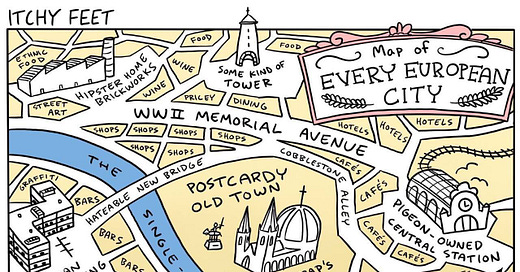


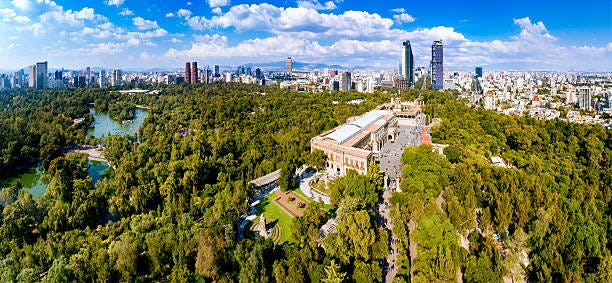
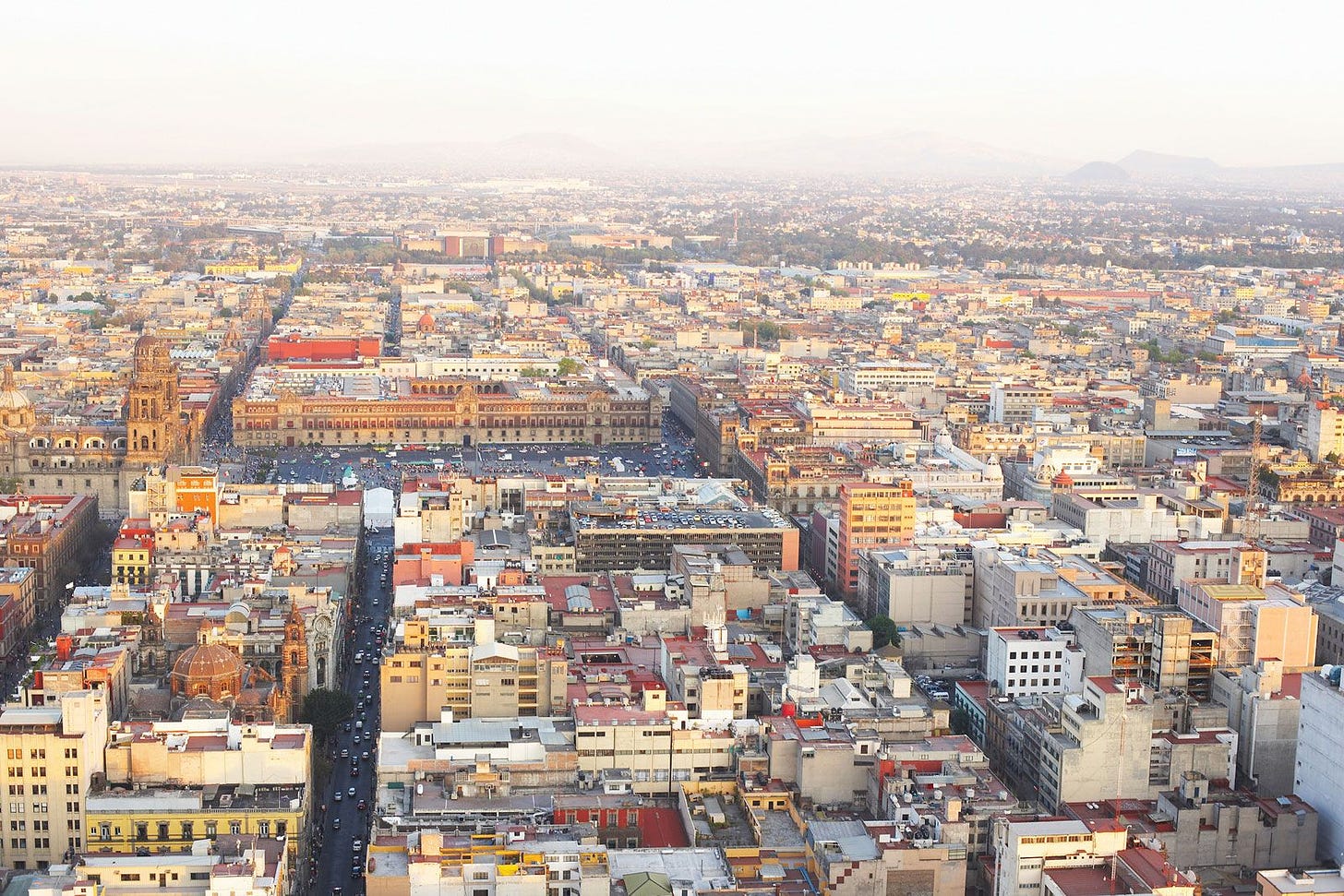
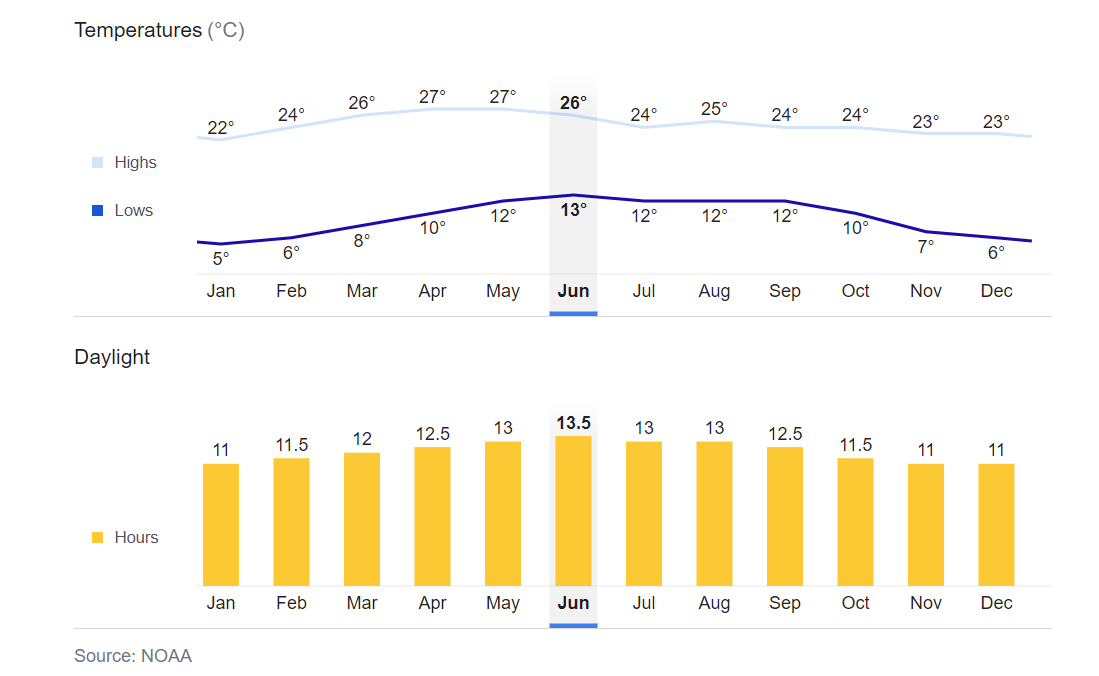
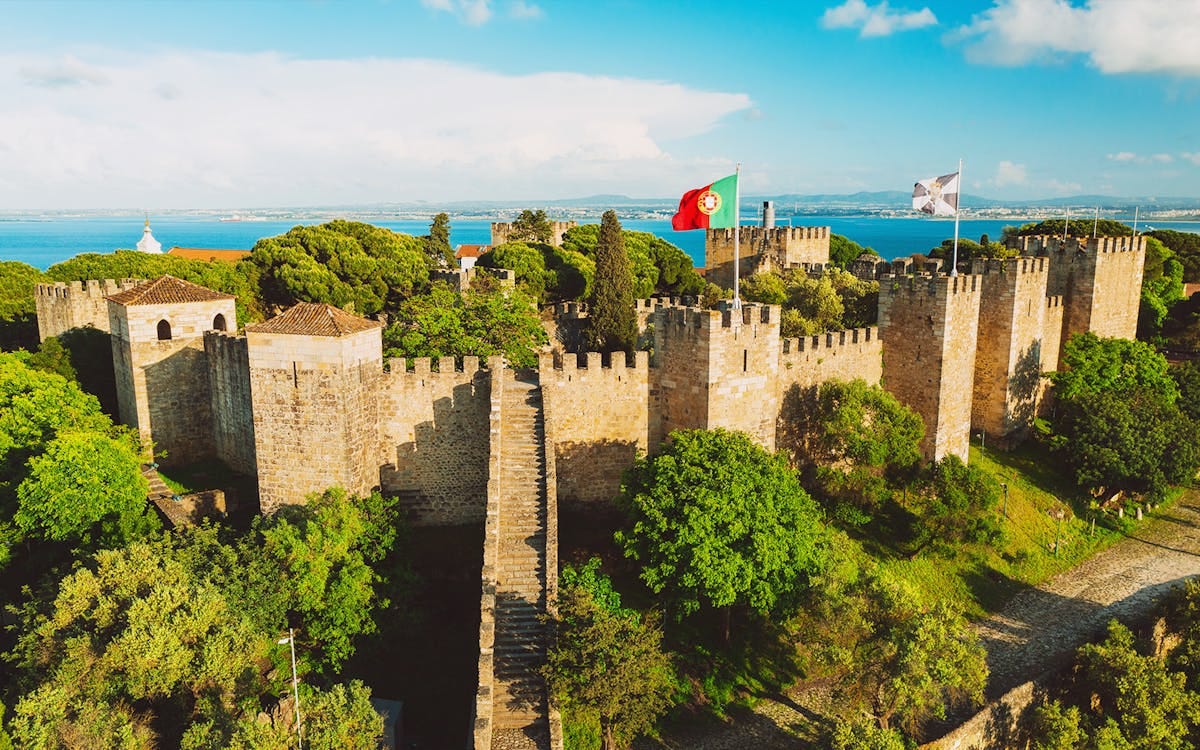
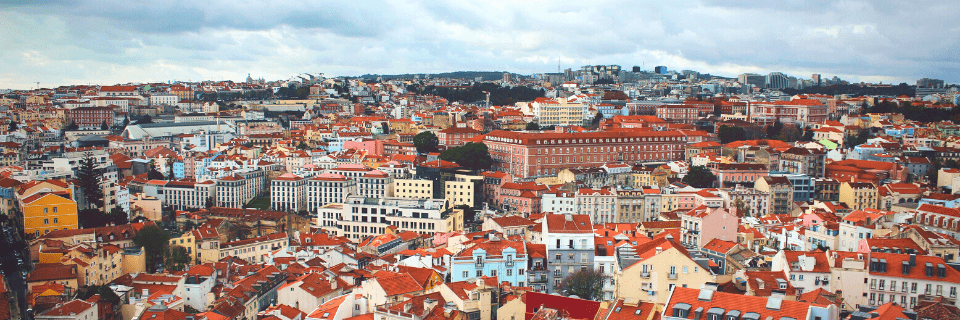
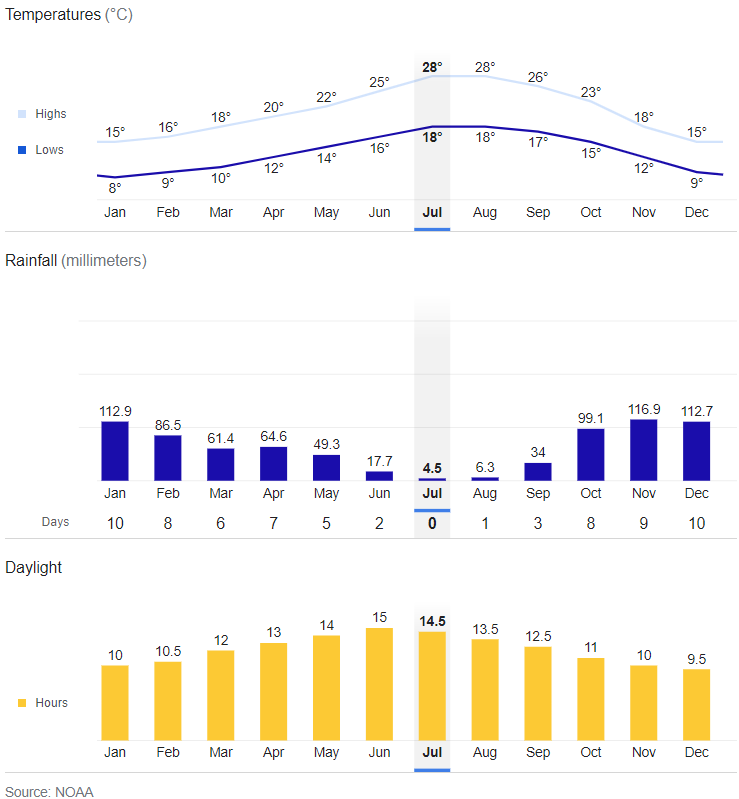
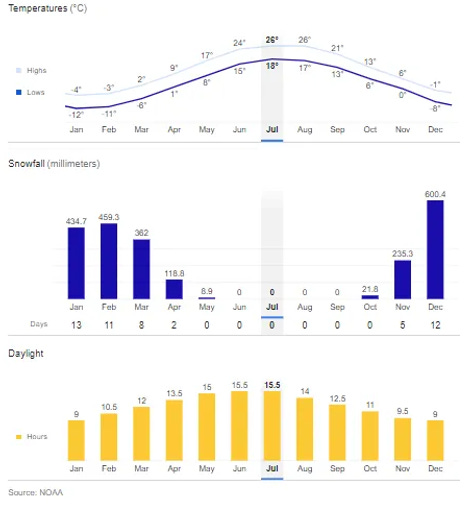
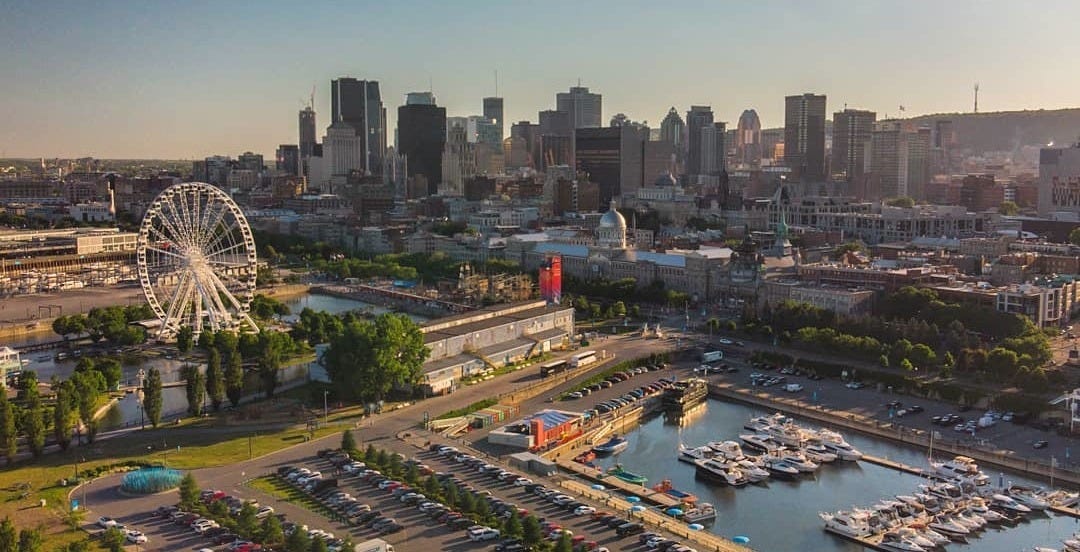
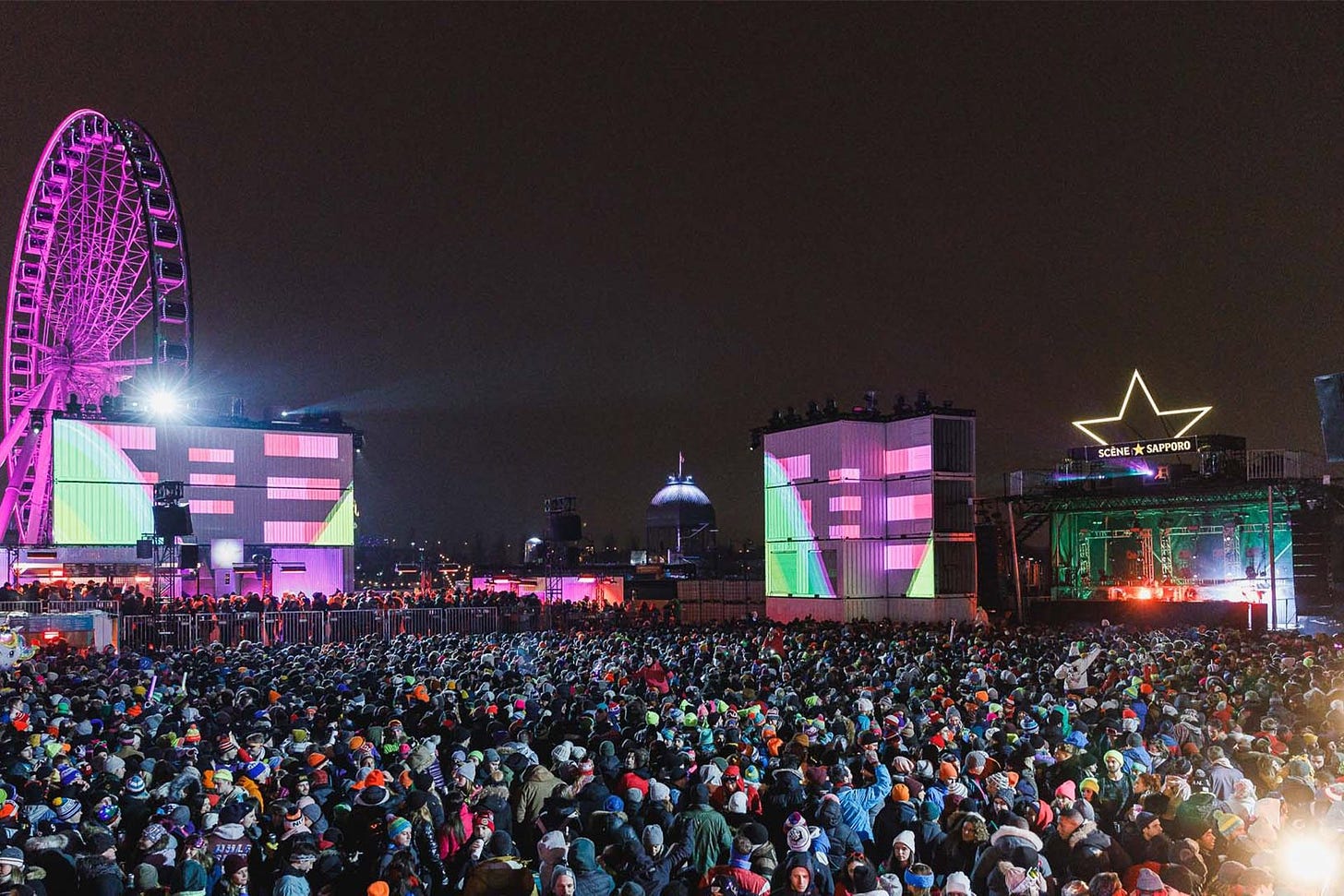

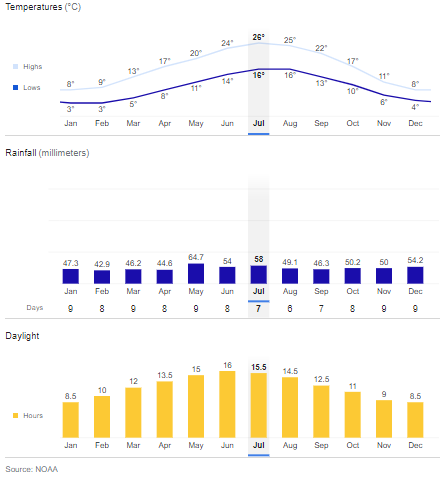
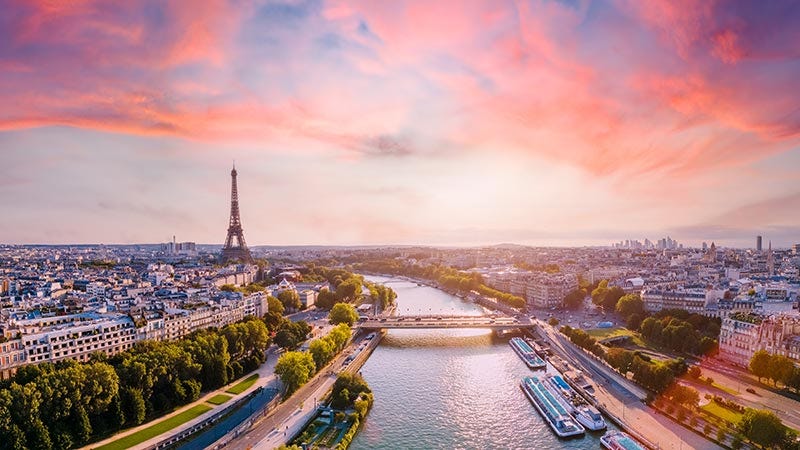

One of the most useful posts I've read on substack. Interested in your views on Madrid!
Very insightful! Would love to read your thoughts about London, Amsterdam and Stockholm!